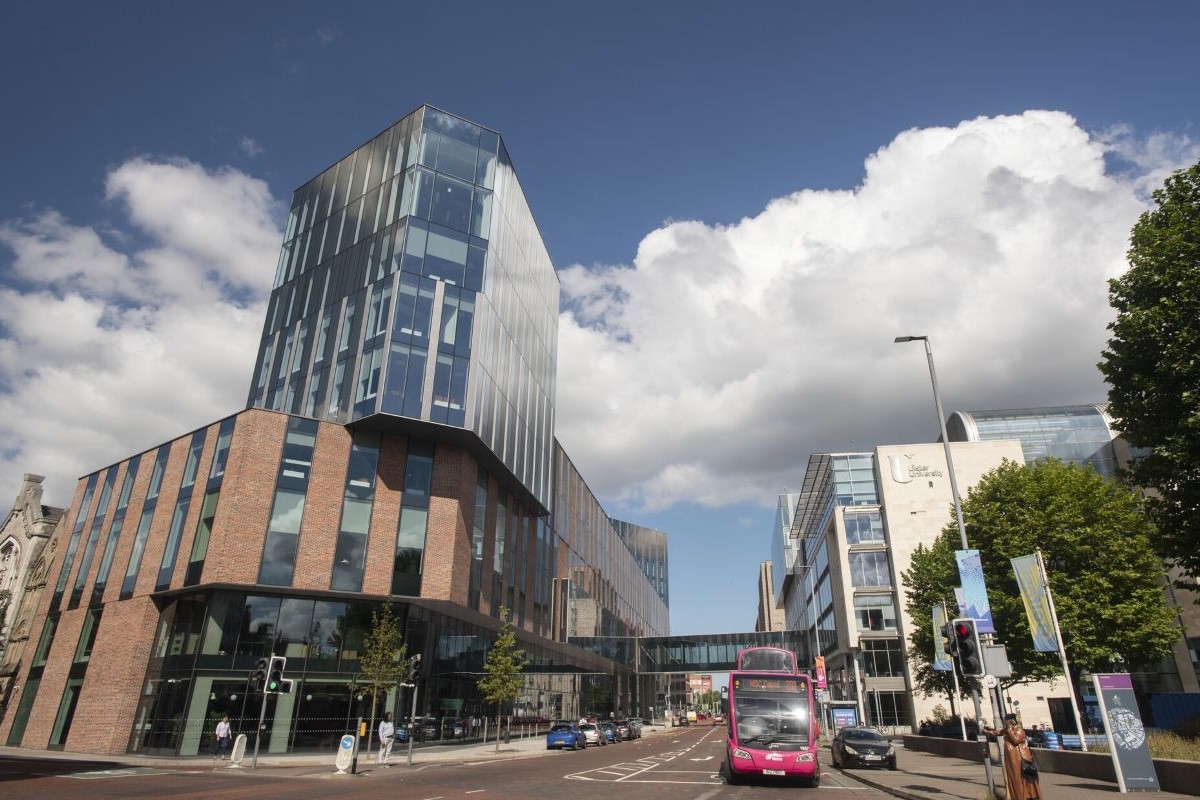Beyond the Paycheck: Rethinking How We Measure the Value of a University Degree

Dr Jamie Smith discusses the broader value of higher education, arguing that degrees, regardless of subject area, contribute significantly to cultural enrichment, intellectual development, and societal progress. He contends that the UK Government should support universities and recognise the multifaceted benefits of higher education beyond narrow economic measures.
Introduction
The current UK Conservative Government has proposed redirecting some funding from what it terms “Mickey Mouse” degrees to support the creation of 100,000 apprenticeships. This policy and approach prompts a crucial examination of the intrinsic value of higher education and the thinking on which such an approach is based, assuming there was some thinking and consultation. This article contends that degrees, regardless of their immediate economic output and subject area, hold significant cultural, social, and intellectual worth that extends far beyond narrow economic measures as the UK Government is trying to define them. My contention is that it is the UK Government’s role to shape the national economic strategy and ensure economic prosperity where its role is pivotal while universities, when adequately supported, embody the pinnacle of societal achievement in a much broader and more complex sense that is critical to the wellbeing of society.
Economic Utility vs. Broader Value
The discourse surrounding higher education often currently centres on its economic utility. Recent proposals by the UK Conservative Government to replace funding for certain degree programs with apprenticeship schemes reflect this trend. This approach is as flawed as one that reduces the value of a human being to a score out of 10. The term “Mickey Mouse” degrees, used pejoratively by some politicians to describe certain courses, suggests that some educational pathways lack substantive value.
However, this perspective is myopic, as it overlooks the multifaceted contributions that all forms of higher education provide to society. This article examines the broader value of degrees, arguing that higher education should not be evaluated solely on immediate economic returns, not least because it is the Government itself, not universities, that plays a primary role in the economic opportunities of the nation. Instead, the comprehensive benefits of higher education, including cultural enrichment, critical thinking, and societal progress, must be acknowledged. If we go down a different road, the implications for the society we live in will be profound, not least somewhat ironically for the UK national economy also as this article demonstrates.
The Transformative Impact of Higher Education
In the current climate of economic uncertainty, it’s tempting to reduce the value of a university degree to a simple calculation: how much does it boost earning potential? Yet, this narrow focus on economic output misses the broader, transformative impact of higher education, as evidenced by extensive research.
Universities are not simply training centres for today’s jobs, they are incubators of critical thinking, creativity, innovation and social mobility. They foster the critical skills – communication, teamwork, problem-solving – that are increasingly valued in the rapidly evolving modern workplace, as demonstrated by the World Economic Forum’s Future of Jobs Report and countless other reports and research. In the digital age it’s not the biggest or fastest who will prosper, but those most able to adapt and universities nurture the abilities to do this in a way that only universities can.
Lifetime of Learning and Adaptation
Universities equip graduates not just for their first job, but for a lifetime of learning and adaptation which is essential in the digital age. Looking at apprenticeships or higher level degrees, the debate should not be polarised into funding choices between one or the other, something that’s a deliberate strategy by those arguing for it of course. We should be demanding, loudly, a well funded education system across the whole of a lifetime of learning, from well resourced schools, to colleges and universities and more. We can afford it. This is a question of priorities. When I did my first degree it was not only free but I received a grant yet the country was in overall terms poorer back then than we are now, yet today the Government puts forward the argument that this is about tough choices and affordability. It’s not. It’s about priorities. As US President Joe Biden once said, don’t tell me what your priorities are, show me your budget and I’ll tell you what your priorities are.
Non-Economic Benefits of Higher Education
It’s worth noting that studies consistently demonstrate the non-economic benefits of a university degree. For instance, a study published in the Journal of Health and Social Behaviour found that university graduates are more likely to be engaged citizens and to volunteer in their communities. The Office for National Statistics also reports that they have higher levels of life satisfaction and well-being. University courses irrespective of subject contribute to a happier, healthier and more productive society. There is also academically rigorous evidence showing causality between higher levels of education and better health outcomes, reducing the impact on the NHS by strategic sums.
Moreover, a university education generates a multitude of wider societal benefits. Research by Universities UK shows that it drives economic growth, fuels innovation, and promotes social mobility. Universities are hubs of cultural production, and they play a crucial role in addressing global challenges, from climate change to public health as mentioned.
A More Nuanced Approach to Measuring Value
Focusing solely on graduate earnings obscures these vital contributions and is a reductionist view of what a university is. We need a more nuanced approach to measuring the value of higher education, one that recognises its multifaceted impact on individuals, communities, and society as a whole. This approach includes taking into account the intangible benefits, such as personal growth and societal contribution, alongside economic outcomes.
The Economic Argument: An Incomplete Picture
The UK Government’s rationale for shifting funding hinges on the perception that certain degrees do not directly translate into high-paying jobs or clear economic benefits. Indeed, studies have shown that graduates from certain disciplines, such as the arts and humanities, tend to have lower starting salaries compared to those in STEM fields (Science, Technology, Engineering, and Mathematics). This data has fueled the argument for redirecting resources towards apprenticeships and vocational training, which are perceived to offer more immediate and tangible economic benefits.
However, this economic argument does not capture the complete picture. Research indicates that higher education contributes significantly to economic growth, even in non-STEM fields. A report by the British Academy highlights that the creative industries, heavily populated by arts and humanities graduates, contribute over £111 billion annually to the UK economy, supporting 2.1 million jobs. For my part, my first degree was in literature yet today I hold six Board positions and have started and built multiple companies. The knowledge, skills, connections and experiences that comprised my university journey played a profound role in enabling this.
This economic impact underscores the importance of a diverse educational ecosystem that includes so-called “Mickey Mouse” degrees. Speaking of Mickey it’s worth noting that Mickey is also doing quite well with his empire currently valued at a little over $184 billion and Mickey himself is commercially one of the most valuable IP’s ever created.
Cultural Enrichment and Social Cohesion.
Degrees in the arts, humanities, and social sciences play a crucial role in fostering cultural enrichment and social cohesion. These fields encourage critical thinking, ethical reasoning, and a deeper understanding of human experiences and societal structures. For instance, history graduates contribute to our understanding of cultural heritage, while literature graduates enhance societal empathy and moral engagement through storytelling and analysis among many wider applications.
Moreover, universities serve as cultural hubs, fostering environments where diverse ideas and perspectives can flourish. They are spaces where societal values are examined and challenged, leading to progressive social change and conversely becoming the focus of attention for those with an agenda to prevent this . The importance of such environments cannot be overstated, as they contribute to a more informed, tolerant, and cohesive society.
Intellectual Development and Innovation.
Higher education is a cornerstone of intellectual development and innovation. Universities are breeding grounds for new ideas and research that drive societal advancement. For example, research in the social sciences informs public policy, while advancements in humanities research can lead to new ways of thinking about pressing global issues, such as climate change and social justice.
A study by the HEPI found that graduates contribute to innovation across various sectors, regardless of their field of study. This cross-pollination of ideas is essential for addressing complex, interdisciplinary challenges. Innovation often emerges from unexpected places, and the value of a well-rounded education system lies in its ability to nurture diverse talents and perspectives.
Personal Growth and Civic Engagement.
Beyond economic and intellectual contributions, higher education fosters personal growth and civic engagement. University experiences help individuals develop critical life skills, such as communication, problem-solving, and adaptability. These skills are invaluable in navigating an increasingly complex and dynamic world.
Additionally, graduates tend to be more engaged citizens. The Department for Education reported that individuals with higher education qualifications are more likely to participate in civic activities, such as voting and volunteering. This engagement is vital for the health of a democratic society, as it ensures that a broad spectrum of voices is heard in public discourse.
The Role of Government in Shaping Economic Strategy
The UK Government plays a crucial role in shaping the national economic strategy and is ultimately accountable for its success. Policymakers must recognise that they are accountable for the health of the economy which is intricately linked to the national industrial strategy, taxation systems and wider economic levers of Government that either create economic prosperity and success or fail to do so. A well-funded and diverse higher education sector is essential for fostering a skilled, innovative, and adaptable workforce and cannot be reduced to a simple metric of linking existing jobs to existing degree courses any more than your child can be summed up in their entirety by describing them as a grade 6.
A Balanced Approach to Education Funding
The Government’s focus on apprenticeships and vocational training is commendable and necessary for addressing skills gaps in certain industries in specific contexts. However, this focus should not come at the expense of higher education or for that matter anything else. Instead, a balanced approach is needed, one that values all forms of education and recognises their unique contributions to society.
Economic Impact of Higher Education and Creative Industries
Thinking of Mickey for a moment, the creative industries, supported by arts and humanities graduates, contribute over £111 billion annually to the UK economy and support 2.1 million jobs. In addition the UK higher education sector based on research by Universities UK generates a total economic impact of more than £115 billion, including £30.6bn of direct impact alongside a further £40.8bn of indirect and induced impact. In terms of the number of FTE jobs supported, in addition to the 385,500 FTE staff that were directly employed by UK higher education providers in 2021-22, the providers’ activities supported a further 382,500 FTE jobs throughout the wider economy. The total employment impact associated with higher education providers’ operations across the UK was estimated to be 768,000. Be under no doubt that higher education is one of the largest and most critical sectors when it comes to the health and wellbeing of the country. When you look at the data, rather than soundbites from opportunistic politicians pursuing a populist agenda, the picture looks rather different.
Impact of Arts, Humanities, and Social Sciences
The UK’s creative industries, Mickey’s home sector, are a testament to the economic and cultural value of arts and humanities degrees. Graduates in these fields contribute to a vibrant sector that includes film, music, theatre, and design among many more examples.
Research in the social sciences also has a profound impact on public policy. For example, economists and sociologists have contributed to understanding the complexities of inequality and developing policies to address social issues. The work of social scientists during the COVID-19 pandemic, such as behavioural insights used to shape public health strategies, demonstrates the critical role of these disciplines. Often these roles might not pay as much as say a high flying finance role in London, but it’s not universities that are accountable for that.
Interdisciplinary Research and Innovation
It’s also worth noting the role of interdisciplinary research that often leads to groundbreaking innovations. The field of digital humanities, which combines computing and humanities research, has led to new methods for analysing historical texts and cultural artefacts. This fusion of disciplines highlights the importance of supporting a broad range of academic fields.
The Future of Higher Education in the UK
Looking ahead, the future of higher education in the UK can be bright if universities receive the support they need. By recognising the value of all degrees and providing adequate funding, the Government can ensure that higher education continues to be a driver of innovation, cultural enrichment, and social progress.
Conclusion
The value of higher education extends far beyond narrow economic measures. Degrees in all fields contribute to cultural enrichment, intellectual development, personal growth, and civic engagement. By supporting universities and investing in a diverse range of academic disciplines, the UK Government can ensure a prosperous and innovative future for the UK. Higher education represents the best of what we can collectively achieve as a society, and its continued support is essential for our collective progress.
A university degree is not just a ticket to a higher salary. It’s an investment in human potential, a catalyst for personal and societal transformation. Let’s not sell it short by reducing its value to a single figure on a payslip.
By Dr Jamie Smith, Executive Chairman of C-Learning











Responses